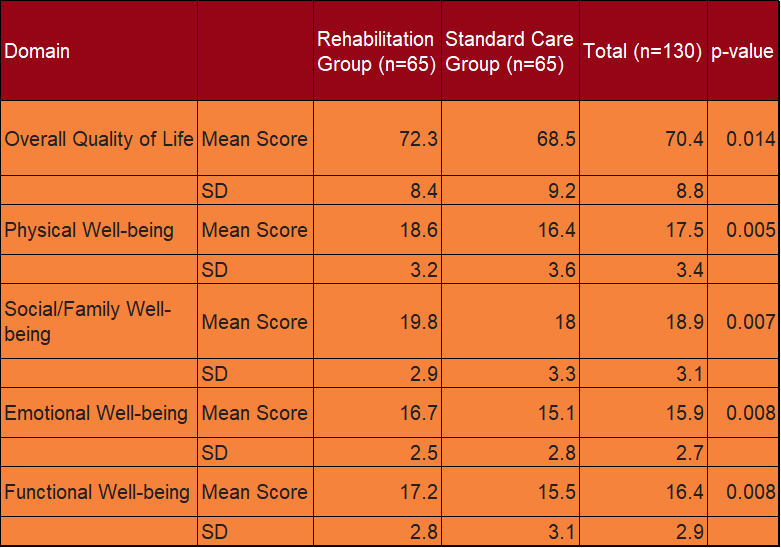
Introduction
With the ageing population, the incidence of cancer among older adults is set to surge significantly. By 2040, it is projected that more than 70% of all cancer cases will be diagnosed in individuals aged 65 and above. Older cancer patients often face intricate health challenges due to various factors such as comorbid chronic conditions, functional limitations, malnutrition, cognitive decline, and geriatric syndromes. These complexities can impede their ability to withstand and recover from cancer treatments. Compared to younger patients, older individuals undergoing cancer treatment often experience high level of toxicity, prolonged hospital stays, treatment delays, incomplete therapy, and diminished quality of life (QoL). Studies show that up to half of older cancer survivors report enduring physical disabilities and reduced health status even a decade post-diagnosis. Therefore, tailored geriatric-specific cancer rehabilitation programmes are necessary to enhance the QoL for older adults undergoing cancer treatment.
Evaluating Geriatric-Specific Cancer Rehabilitation Programs
A recent study conducted in Al-Ahsa, Saudi Arabia, examined the efficacy of a tailored geriatric cancer rehabilitation programme on the QoL of 130 cancer patients aged 65 to over 80, with a slight concentration in the 70-74 age group. The most common cancer types among participants were breast, prostate, lung, and colorectal cancers.
The research revealed that participants in the rehabilitation group exhibited significantly higher QoL scores across physical, social, and functional domains compared to those receiving standard oncology care. Participants in the rehabilitation group experienced reduced symptom burden and functional deficits. They also showed better emotional health and social connectedness. These benefits enabled seniors to maintain independence, tolerate necessary treatments, and achieve some control over their healing journey.

Comprehensive Geriatric Assessment: A Key to Personalised Care
Comprehensive geriatric assessment (CGA) plays a vital role in delivering patient-centred care by offering detailed insights into the medical, psychosocial, and functional capacities of older cancer patients. Through CGA, healthcare providers can tailor care plans that optimise cancer outcomes while addressing the individual health needs and goals of each patient. By evaluating factors like comorbidities, fall risk, medications, cognitive function, and nutritional status, CGA enables personalised care that enhances diagnostic accuracy, treatment tolerance, survival rates, and overall QoL for vulnerable older cancer patients.
Specialised Geriatric Cancer Rehabilitation: A Promising Approach
Geriatric-specific cancer rehabilitation interventions hold promise in addressing the complex needs of older cancer patients and improving their health outcomes. These programmes encompass a range of interventions, including physical and occupational therapy, nutritional counselling, pain management, and psychological support, aimed at enhancing patients’ physical, social, and psychological well-being. Evidence suggests that participation in multidisciplinary cancer rehabilitation programmes leads to significant improvements in physical and emotional symptoms, treatment tolerance, functional independence, and overall QoL for cancer patients across different age groups. However, persistent health system barriers limit referral and access to these programs. Addressing these barriers is crucial as cancer incidence among older adults continues to rise.
Conclusion
Geriatric-specific cancer rehabilitation offers meaningful improvements in QoL for older adults. The study highlighted the necessity for collaborative efforts between oncology and geriatrics to address the unique needs of this population. By focusing on personalised care, comprehensive assessments, and tailored rehabilitation interventions, healthcare providers can empower older cancer patients to navigate their cancer journey with resilience and improved well-being. As the population ages and cancer rates rise, it is imperative to invest in evidence-based interventions like geriatric cancer rehabilitation to ensure that older adults receive the care and support they need to enhance their QoL and overall health.
